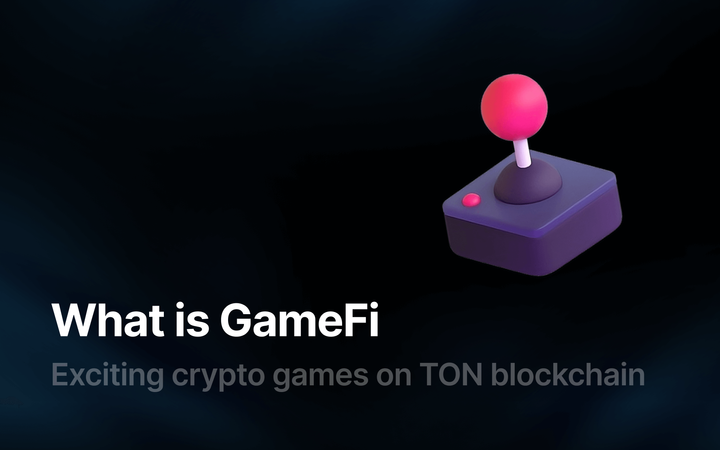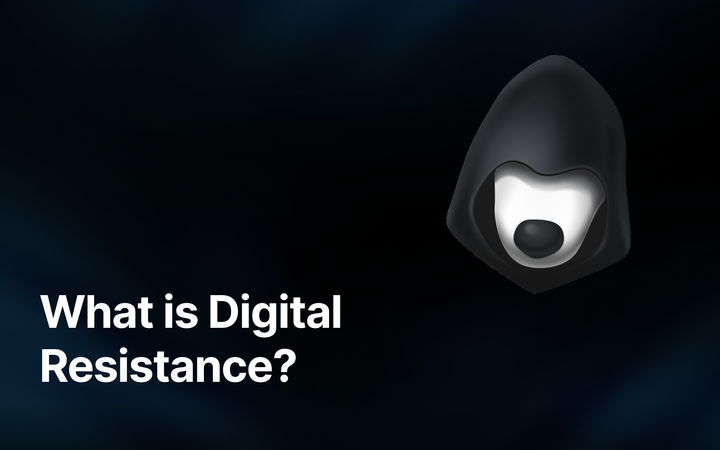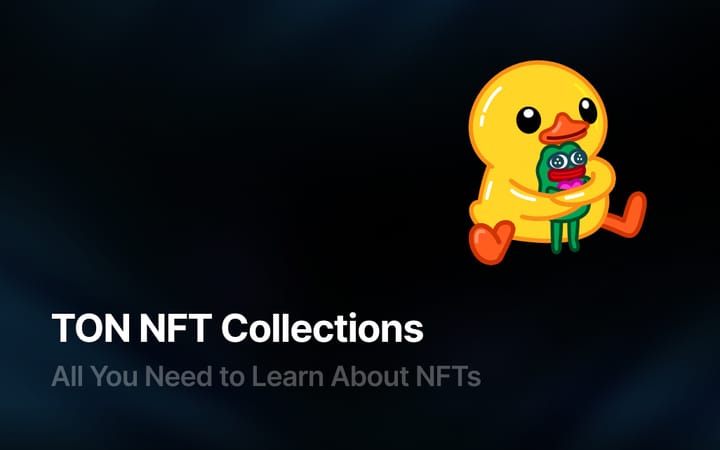DeFi for beginners: where to start and what to expect

Decentralized finance, or DeFi, is a next-gen financial ecosystem based on blockchain technology that challenges the old school of banks and other institutions. DeFi is not just an alternative - it's a new reality where there is no place for intermediaries like banks. Here, every step can be seen and is irreversible, ensuring purity and transparency
Why do we need DeFi? For the same reasons we need blockchain. DeFi addresses issues of privacy and transparency that are currently burning our world. It aims to kick third parties out of your personal financial matters, creating a system where your money and data are anonymous and securely protected. You don’t need banks to trade, borrow, or invest because everything goes through smart contracts on the blockchain. DeFi gives you the freedom to use your money to the fullest, without unnecessary oversight and control. In short, DeFi is financial freedom without the hassle and limitations.
How does DeFi work?
DeFi challenges the old guard using smart contracts, so you no longer need banks or any traditional financial institutions to handle your assets. You are in direct contact with other market players, and thanks to the blockchain, all your transactions are crystal clear and secure. And the coolest part - no one but you controls your money.
Using DeFi, you manage your finances through an ultra-modern digital wallet. Want to make a transaction? Just set up a smart contract with the necessary conditions and you're all set. For example, you can program regular transfers to a specific account - and as long as there's enough money in your balance, the funds will automatically go out. And yes, once a contract is set up, it can't be altered, so no funds will go astray.
What is a smart contract? It’s a new generation of contracts that operate autonomously and without intermediaries. You simply set the conditions "if this, then that" and the contract executes itself as soon as all conditions are met. It’s not only convenient but also safe, transparent, and saves a ton of money on bureaucracy.
Applications of decentralized finance
Payments
Forget about banks and intermediary payment systems. DeFi allows you to send payments directly to one another. Faster, more efficient, and cheaper - that's the new reality of transactions.
Loans and Credits
DeFi platforms offer loans and credits, opening the doors to finance for those who do without traditional banking services. Say goodbye to intermediaries and hello to direct access to money, where cryptographic methods make DeFi platforms not only convenient but also reliable.
dApps
On platforms like Ethereum, Solana, and Polkadot, developers create decentralized applications that radically rewrite the rules of the game. These apps aren’t just alternatives to traditional platforms - they offer democratic access to financial services, backed by DeFi utility tokens.
DEX
Decentralized exchanges turn trading into an exciting adventure with zero influence from central authorities. Transparent, accessible, and powerful, they allow you to trade on your terms, opening up a world of possibilities for everyone.
Farming
Farming is when you lock your assets in smart contracts, thereby providing liquidity to the protocol, and in return, you get a percentage of the platform’s income. It’s like planting a money tree in the digital world and regularly harvesting its fruits!
RWA
RWA, or Real World Assets, involves tokenizing real-world assets - whether art, intellectual property, real estate, or various goods - into blockchain tokens. This bridges the offline and online worlds, allowing traditional assets to become part of the digital economy. Tokenization of RWA opens new horizons for integrating ordinary assets into DeFi, linking it with the traditional financial system.
Many DeFi projects utilize the functionality of Ethereum smart contracts to create decentralized lending platforms, stablecoins, exchanges, and other financial services. Thus, while Ethereum itself is not DeFi, it provides the infrastructure that has facilitated the flourishing of the DeFi ecosystem. 9 out of the top 10 DeFi projects run on Ethereum.
DeFi prediction markets on steroids: DeFi technology allows the creation of oracles and prediction markets, enabling the generation of more accurate data for financial transactions - and this is just the beginning.
Here are three cool benefits of decentralized prediction markets:
- No borders: No matter where you are, from Norway to Chile, the decentralized prediction market is open to everyone. Forget about geographical and regulatory limitations.
- Transparency: These markets operate on a P2P basis and are open. All transaction data is checked and stored on the blockchain, so every move is visible.
- Trust, but verify (the code): Forget about needing to trust intermediaries. On these markets, you trust only the code and your own choices. You fully control your digital assets, without risks and hassle.
Centralized vs. Decentralized Finance: Battle of the Titans
When we talk about centralized finance, images of imposing bank buildings and endless rows of credit cards immediately come to mind. This is a world where financial operations are controlled by a few powerful institutions that hold all the power. Centralized finance is familiar and accessible to nearly everyone - what adult or even child today doesn’t have a debit or credit card?
DeFi tells a completely different story. This new revolutionary wave in the financial world challenges all traditional approaches. "DeFi? What kind of beast is that?" many will ask. Well, it's something that could radically change your view of money and investments. dApps and DEX offer a new level of transparency and security, making each operation more reliable and less costly compared to their counterparts in the old financial world. Thanks to blockchain, each record is immutable and protected from fraud.
What are the advantages of DeFi?
Universal access
DeFi allows overcoming geographical and socioeconomic barriers. Anyone in the world with internet access can access financial services that were previously unavailable.
Direct control
Your assets are always under your control, without intermediaries such as banks or financial agents.
Cost reduction
Fewer intermediaries mean lower commissions and the overall cost of transactions. This makes services more accessible to all users.
Increased security
DeFi platforms use distributed ledger technology (DLT), making them inherently resistant to hacking attacks and fraudulent actions.
Transaction transparency
All operations are recorded in the blockchain, where they are available for verification. This transparency fosters a sense of trust and accountability, often lacking in traditional financial systems.
Innovative financial products
The DeFi space is a hub for financial innovations. Users have access to many new opportunities, such as farming, prediction markets, liquidity mining. These are often more profitable and versatile than traditional financial products.
But it's not all roses... Investing in DeFi comes with a number of risks:
Volatility: Like most cryptocurrencies, DeFi can experience sharp price fluctuations.
Smart contract vulnerabilities: Errors in the code can be exploited by attackers, leading to asset losses.
Regulatory uncertainty: DeFi is still in a gray area in most jurisdictions, and when there are no clear rules in the game, it's easier to break them, exposing all users to significant risk.
Liquidity issues: Some DeFi projects may experience liquidity shortages, complicating the input and output of funds.
Impermanent losses: In DeFi liquidity pools, the value of your assets at the time of investment changes unfavorably.
Loss of funds: In the world of crypto, keys are everything. If you lose access to your private keys or fall for a scam, forget about recovering your funds. There is no crypto emergency service to turn to.
Platform risks: If a DeFi platform suddenly decides to "rest" (read: failure or closure), your funds may disappear as if by magic. This can happen due to technical glitches, new regulations, or something else unexpected.
Complexity: DeFi platforms are not for beginners - they can be complicated, and without a sound understanding, you risk stepping on numerous financial rakes.
So why is DeFi so important?
DeFi offers an alternative to the established financial system, promising a fairer and more accessible financial future. This is not just a new technology - it's a new philosophy that can redefine who and how controls finance in the world. And if you're ready for change, DeFi could be your ticket to the future of finance.








